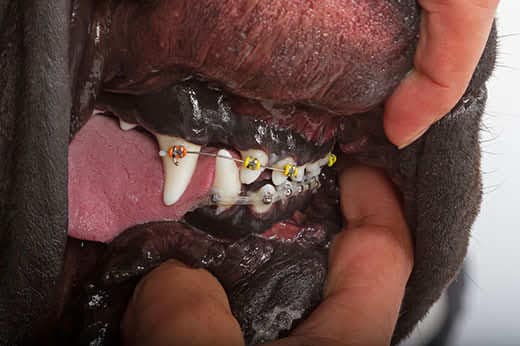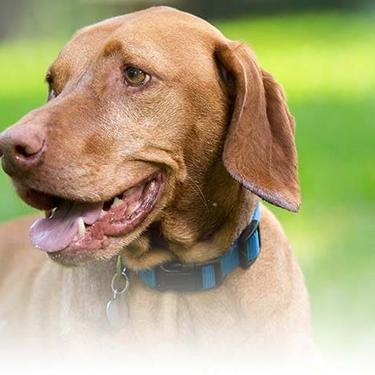
-
Find the right food for your pet
Take this quiz to see which food may be the best for your furry friend.
Find the right food for your pet
Take this quiz to see which food may be the best for your furry friend.
Featured products
 Adult Healthy Cuisine Roasted Chicken, Carrots & Spinach Stew Dog Food
Adult Healthy Cuisine Roasted Chicken, Carrots & Spinach Stew Dog FoodDelicious roasted chicken paired with tender vegetables in a succulent stew
Shop Now Small & Mini Savory Stew with Chicken & Vegetables Dog Food
Small & Mini Savory Stew with Chicken & Vegetables Dog FoodA delicious complement to the nutrition of Science Diet Small & Mini 7+ dog food
Shop Now Adult 7+ Perfect Digestion Chicken, Whole Oats & Brown Rice Recipe Dog Food
Adult 7+ Perfect Digestion Chicken, Whole Oats & Brown Rice Recipe Dog FoodScience Diet's breakthrough nutrition supports ultimate digestive well-being & healthy microbiome for dogs age 7+
Shop NowFeatured products
 Adult 7+ Senior Vitality Chicken & Vegetable Stew Cat Food
Adult 7+ Senior Vitality Chicken & Vegetable Stew Cat FoodImproves Everyday Ability to Get Up & Go
Shop Now Adult 7+ Tender Tuna Dinner Cat Food
Adult 7+ Tender Tuna Dinner Cat FoodWith delicious chunks in a decadent gravy
Shop Now Adult Savory Entrée Can Variety Pack Cat Food
Adult Savory Entrée Can Variety Pack Cat FoodPrecisely balanced nutrition with the delicious taste of savory minced chicken to help fuel the energy needs of cats during the prime of their life
Shop Now -
Dog
- Dog Tips & Articles
-
Health Category
- Weight
- Food & Environmental Sensitivities
- Urinary
- Digestive
- Joint
- Kidney
-
Life Stage
- Puppy Nutrition
- Adult Nutrition
- Senior Nutrition
Cat
- Cat Tips & Articles
-
Health Category
- Weight
- Skin & Food Sensitivities
- Urinary
- Digestive
- Kidney
-
Life Stage
- Kitten Nutrition
- Adult Nutrition
Featured articles
 Do Dogs and Cats have Belly Buttons?
Do Dogs and Cats have Belly Buttons?Learn whether cats & dogs have belly buttons like humans, what the function is, and if there are any health concerns associated with it.
Read More Why Are Dogs and Cats So Cute?
Why Are Dogs and Cats So Cute?If waggy puppy dog tails and furry kitten yawns make you swoon, you're not alone. Why are cats so cute? And, dogs too! Let's find out!
Read More Does My Pet Hate Me?
Does My Pet Hate Me?Learn tips for bonding with your pet if you've ever thought, 'My dog doesn't like me, or 'Why do I have a standoffish cat?'
Read More -


If you have a dog with crooked teeth or bite alignment issues, you've probably wondered, "Can dogs get braces?" Or maybe you're looking to learn more about dog braces from hearing about Wesley, a golden retriever puppy who had braces to correct their bite, as Patch reports.
Turns out dog braces exist, and they have for well over 30 years in veterinary dentistry and orthodontia to help dogs with painful or life-threatening dental problems. While humans usually wear braces for cosmetic issues, the goal of doggie orthodontia is to help a dog chew and eat normally.
Can Dogs Get Braces?

Dog braces can help with several dental conditions, including crowded teeth, misaligned teeth and lance teeth, which are upper canine teeth that abnormally point out of the mouth instead of down. Additional conditions that have been treated with braces in dogs include:
- Linguoversion: This is a condition when one or both of the canine teeth in the lower jaw erupt on the inside. Linguoversion is a problem seen in dogs with long and narrow noses, like collie breeds. Linguoversion is painful and doesn't allow the mouth to close properly. In severe cases, the condition can cause the abnormally placed canine teeth to poke holes in the roof of the mouth. Linguoversion requires treatment with either braces or removal of the abnormal canine teeth.
- Overbites: These occur when the lower jaw is shorter than the top jaw.
- Remaining Baby Teeth: When a dog's baby teeth don't fall out, it can lead to dental crowding, bite issues and periodontal disease.
- Surgery Aftercare: In situations where cancer treatment results in surgical removal of part of the jaw, braces can keep teeth from drifting out of position.
How Can I Tell if My Dog Needs Braces?
If your dog is dropping food, acting head shy, has an overbite or if you notice any changes to their teeth, then it's time to consult with your veterinarian. Your vet is your best resource to tell you whether your dog needs braces, or if there's another dental issue. They'll conduct a full physical and dental exam and can point out any issues to you.
Most dogs who have a condition that requires orthodontic treatment are diagnosed when they're young, usually between 4 and 6 months of age when the adult teeth come in. Similar to a human dentist, if your vet spots a problem, they may refer you to a veterinary dentist who specializes in canine orthodontia. Even if you're skeptical about dog braces, if your vet notices an issue in your dog's mouth, it's always a good idea to at least consult with a veterinary dentist to learn about treatment options and ask questions.
What Other Factors Should I Consider?
In addition to the particular dental condition that a dog has, there are other factors to think about when considering getting your dog fitted for braces.

Health
One important factor is whether your dog is healthy enough to go under general anesthesia, as this is necessary to apply dog braces. Veterinary dentists also X-ray and clean the teeth while the dog is under anesthesia, if necessary. Depending on your dog's condition, several rounds of anesthesia may be required, depending on how fast a dog's teeth move. The good news is that the process isn't nearly as long or involved as in humans: Most dogs usually wear braces for weeks to a few months, while humans usually wear braces for a few years.
Cost
Generally, dog braces can cost anywhere from $2,000 to $5,000. However, the cost depends on several factors, including the size of your dog, the dental condition your dog has and how long your dog has to wear braces. One solution to reducing the cost of dog braces is to enroll in pet dental insurance.


Tasty Tips
How Do I Care for a Dog With Braces?
Caring for a dog with braces isn't difficult, but it does require you to regularly brush and inspect your dog's teeth. Fortunately, that's something you should be doing regularly anyway! If your dog is fitted with braces, brush your dog's teeth, apply an oral antiseptic and inspect the braces daily. Additionally, your dog may need to eat soft food while they have braces, and they shouldn't have access to any chew toys or bones to avoid breaking off the dental appliances.
After your dog's braces are removed, they don't need a retainer to keep the teeth in place, and they can go back to regular food and chew toy happiness.
Are There Other Treatment Options?
Even though the answer to the question, "Can dogs get braces?" is yes, the answer to whether your dog should get braces might still be "no." In that case, it's still always worth a consultation with a vet or a board-certified veterinary dentist to explore other options for your dog, which can include:
- Ball therapy, a technique to correct minor cases of misaligned teeth associated with linguoversion, as Hale Veterinary Clinic explains
- Tooth extraction
- Shortening teeth with filing
Can dogs get braces? Yes they can, and in most cases, braces are affordable and an easy way to correct your dog's dental problem. If you have cost concerns, ask your vet about getting a pet insurance policy for your dog that covers medically necessary orthodontic treatments.


Dr. Sarah Wooten graduated from UC Davis School of Veterinary Medicine in 2002. A member of the American Society of Veterinary Journalists, Dr. Wooten divides her professional time between small animal practice in Greeley, Colorado, public speaking on associate issues, leadership, and client communication, and writing. She enjoys camping with her family, skiing, SCUBA, and participating in triathlons.
Related products

Science Diet's breakthrough nutrition supports ultimate digestive well-being & healthy microbiome for dogs age 7+

Delicious braised beef paired with tender vegetables in a succulent stew

Delicious roasted chicken paired with tender vegetables in a succulent stew

A delicious complement to the nutrition of Science Diet Small & Mini 7+ dog food
Related articles

Learn about choosing the right food for your mature or older dog, ensuring he receives the correct balance of nutrition.

Hill's Science Diet Small & Toy Breed dog foods are designed to meet the nutritional needs for your small dog at every life stage. Learn more here.

Your dog's coat and skin are a big part of your dog's overall health. Ensure you keep your dog's coat healthy, by following these simple tips.

Large and giant breed puppies have different nutritional needs than other dogs. Learn how to provide the special care they need to grow up big and strong.

Put your dog on a diet without them knowing
Our low calorie formula helps you control your dog's weight. It's packed with high-quality protein for building lean muscles, and made with purposeful ingredients for a flavorful, nutritious meal. Clinically proven antioxidants, Vitamin C+E, help promote a healthy immune system.
Put your dog on a diet without them knowing
Our low calorie formula helps you control your dog's weight. It's packed with high-quality protein for building lean muscles, and made with purposeful ingredients for a flavorful, nutritious meal. Clinically proven antioxidants, Vitamin C+E, help promote a healthy immune system.

